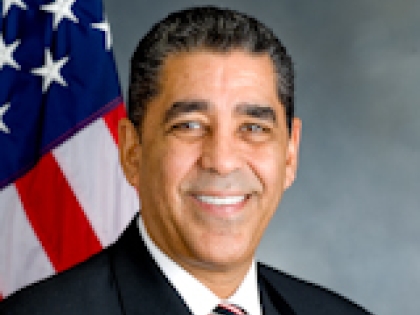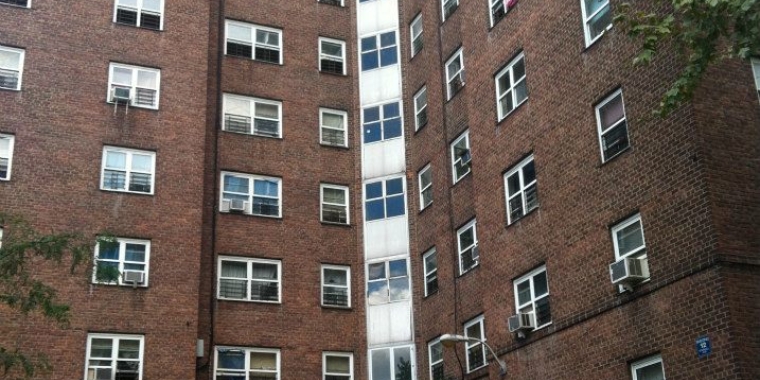
City Hall News: A Look At The Fight To Extend And Strengthen The Rent Laws
Rent Wars - Whether Cuomo can expand stabilization laws will hinge on Senate GOP
By Jon Lentz
In the 1980s, Andrew Cuomo launched a homeless program that was acclaimed for its innovative model of housing. In the early 1990s, he helped revamp New York City's housing policy for the homeless.
By the late 1990s, he was boosting affordable housing across the country as secretary of the U.S. Department of Housing and Urban Development.
The test looming for this housing advocate, now governor of New York, is where he'll come down on the state's rent regulation laws, which expire June 15.
"He's no slouch on the housing issue," said State Sen. Adriano Espaillat, who wants to strengthen the laws that stabilize rents for a million apartments in and around New York City. "We lost 300,000 units of affordable housing in the last 15 years. He knows this is an important issue for New York."
But the governor's remarkable housing résumé is no guarantee that Espaillat and other tenant advocates will get what they want. Cuomo says he wants to expand the rent regulations, but hasn't specified which changes he supports.
In April, the Assembly, which is sympathetic to tenants, passed a bill to raise deregulation thresholds from $175,000 to $300,000 for tenant income and from $2,000 to $3,000 for rents and to limit rent increases for new tenants to 10 percent.
The Republican Senate, which generally represents landlord interests, opposes the bill, and Cuomo has yet to say where he stands. All sides expect rent regulations to be extended, but whether they'll be strengthened, and if so by how much, could very well hinge on the fate of other major issues before the Legislature this spring.
Stronger tenant protections are a high priority for Assembly Speaker Sheldon Silver, who has attempted to link them to the governor's proposal for a 2 percent property tax cap—a proposal that has already passed the Senate.
Silver has also raised the possibility of using the revival of New York City's 421-a tax incentive program, which lapsed in 2010, as a bargaining chip with developers to get the Assembly rent bill through the Senate.
But observers expect the issue will ultimately be decided in negotiations between the governor and Senate Majority Leader Dean Skelos, a staunch landlord ally.
Doug Muzzio, a professor of public affairs at Baruch College, guessed that Skelos will be the first to blink. Since rent laws are a New York City issue, they are less important to upstate Senate Republicans.
"If Shelly's in favor, and we can presume on the policy sense that Cuomo is in favor, it leaves Skelos," Muzzio said. "And I believe Skelos can be had."
Joseph Strasburg, president of the pro-landlord Rent Stabilization Association, told landlords in March he was worried that Skelos might give ground on the rent regulation issue to get the governor to soften his demand for independent redistricting, which could jeopardize the Republicans' Senate majority.
"Is this governor prepared to use that club over their heads and tell them that unless you play ball with me, I'm going to legislate you out of existence?" asked Strasburg, whose comments were captured in an unauthorized video. "I don't know what he'll do."
Strasburg singled out for criticism a provision in the Assembly bill that would re-regulate market rate units that were deregulated due to vacancy decontrol since 2007.
The powerful Real Estate Board of New York, which has closer ties to the governor than Strasburg's landlord group, wants rent regulations renewed in their current form, said Michael Slattery, a REBNY senior vice president.
But in mid-March, REBNY President Steven Spinola told the Wall Street Journal that REBNY would consider supporting a hike in the $2,000 threshold on vacancy decontrol if it were part of a broader compromise—which some believe could include renewal of the 421-a program.
"Unfortunately, the Real Estate Board of New York is more interested in development than they are in residential," Strasburg told landlords. "So they sent a signal…where they indicated that they were willing to negotiate on rent stabilization. And this is probably done in concert with the governor's office."
Slattery insisted that his organization wants to renew the current regulations, since the gradual deregulation approved in the 1990s has opened the door for more capital investment in existing housing and improved the city's housing quality.
"Certainly (Cuomo's) association with REBNY and with real estate developers in New York may have generated some sympathy for the demonstrable costs of doing business in this sector," said David Birdsell, a professor of public affairs at Baruch College. "There's no question that landlords are under pressure, and want to take advantage of a rising market."
Yet Espaillat, who met with the governor the morning the Assembly passed its bill, came away optimistic that Cuomo would broker a deal favoring tenants.
"He's already set the tone by doing the budget early. He's pretty much invested in strengthening the rent laws," Espaillat said. "I think the governor rolled up his sleeves and he's ready to rock and roll."



